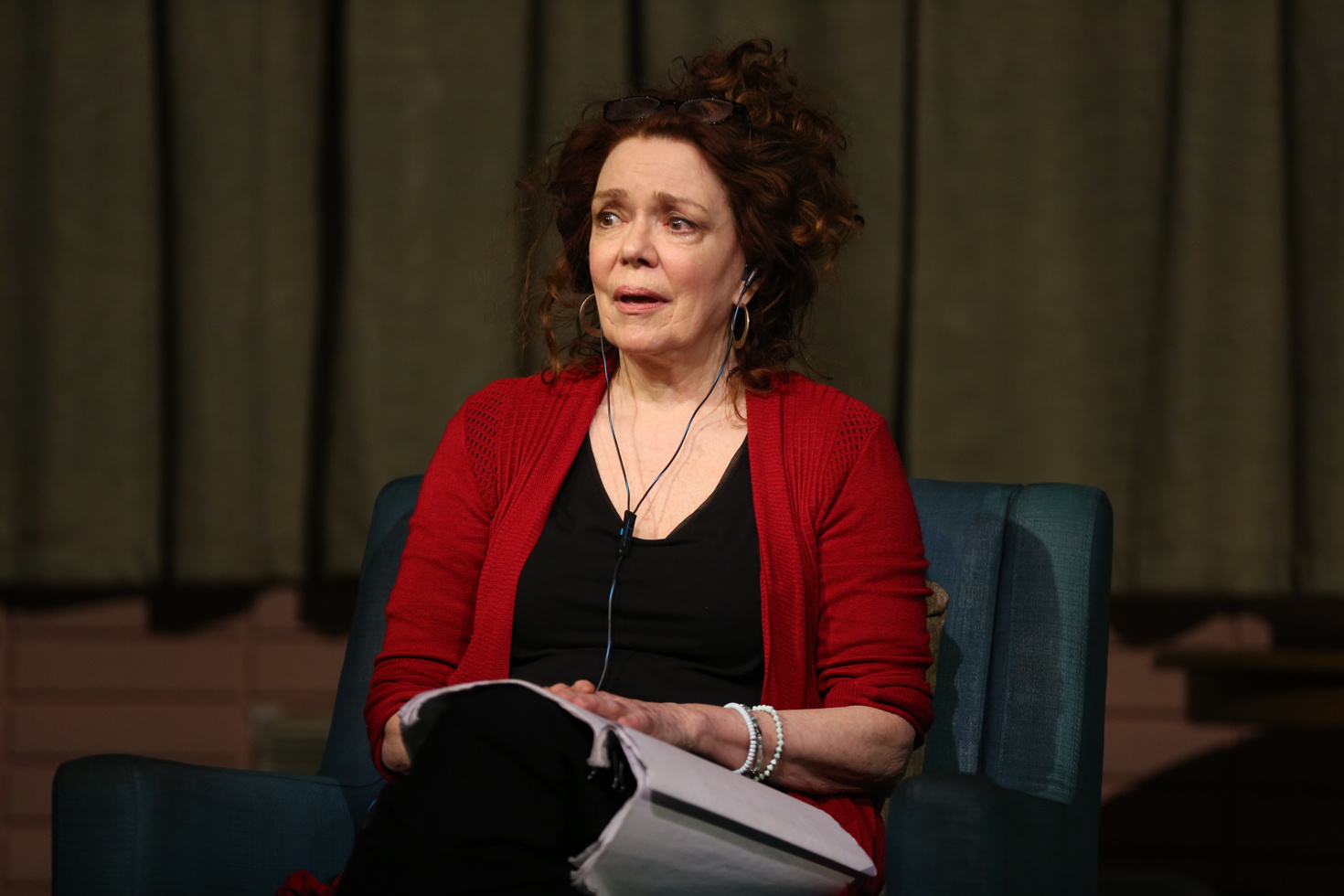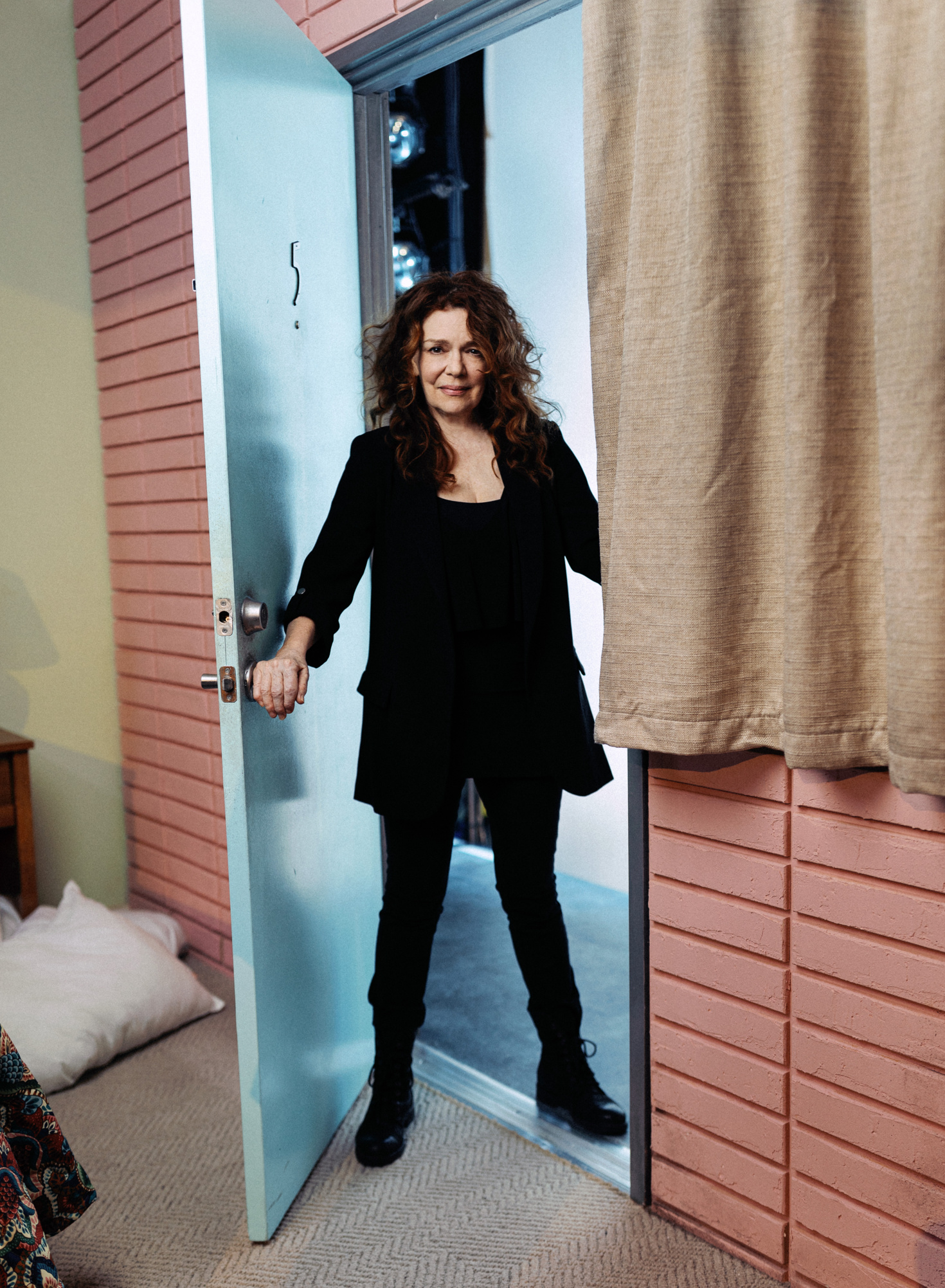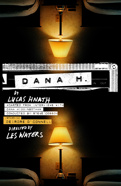Deirdre O'Connell Is Telling a True Crime Story in Dana H., But She Never Uses Her Own Voice


(Photos by Emilio Madrid for Broadway.com)
Deirdre O’Connell has been acting for more than 40 years. An Obie and Drama Desk winner, she’s well-known for her performances in Annie Baker’s Circle Mirror Transformation and in the experimental plays of Mac Wellman. But when playwright Lucas Hnath asked her to star in his play Dana H., about his mother, she hesitated. First of all, the play would be about a five-month period when his mother was kidnapped by a white supremacist. And she would be portraying the role using a recording of his mother’s voice. No stranger to a challenge, O'Connell wasn’t sure if she could do something that was so personal and artistically challenging. "I didn't know whether it would be claustrophobic or pleasurable," she recalls.
Suffice it to say, Hnath was able to convince the actor to say yes. For the past year, O’Connell has performed the play in Los Angeles, Chicago and, now, New York, to much acclaim. The NYC run at off-Broadway's Vineyard Theatre has been extended twice; it will now play through April 11.
It’s an intensely personal piece for Hnath. The playwright, Tony-nominated in 2017 for his A Doll’s House, Part 2, grew up in Orlando, Florida. His mother, Dana Higginbotham is a hospital chaplain. In 1997, when Higginbotham lived alone, one of her patients broke into her house and kidnapped her for five months. That harrowing time and the aftermath are the subjects of Dana H. In writing it, according to O’Connell, Hnath wanted to help his mother process her own trauma. “I feel like a vessel, definitely,” the soft-spoken O’Connell says in her dressing room at the Vineyard. “I'm very much—in a great way—in the service of a relationship between a mother and son.”
To create the recordings, Hnath asked his friend, theater director Steve Cosson, to interview Higginbotham, so she would be telling the story to someone for the first time. On stage, O’Connell embodies not just Higginbotham’s words, but the way she speaks, the pauses, the “ums,” even when she coughs or when her bracelets jingle. Audiences feel like they’re in the room watching Higginbotham herself.

The act of lip-syncing doesn’t allow the audience to doubt the veracity of what’s being told, says O'Connell. “Lucas wanted it to be impossible for the audience to question whether she was saying this. We all want to question: Could this happen? Did this happen? It's just in our nature, when we’re confronted with horrible things, to escape. And part of the escape route was to be like, ‘That couldn't happen.’”
But it did happen. Higginbotham tried to go to the authorities for help, but apparently they didn’t take her seriously. O’Connell says the play is in conversation with the #MeToo movement: Even when a woman does everything right—lock your doors, have a security system, go to the authorities, not talk to strangers—she can still become a victim. “Some people say that, ‘I've never been sexually abused because I've never put myself in that situation,’” says O’Connell. “This play is actually just a literal list of all the things that could happen to anyone that could put them in that situation.”
The lip-syncing also shows audiences trauma doesn’t look like what they might think it looks like. Higginbotham rarely cries when she talks about her experience; she tells her story quite matter of factly. She even laughs. According to O’Connell, one of the motives behind the play is to show that victims of assault don’t always act the way they do in the movies, and the expectations of people to behave in a certain way in order to be seen as credible is a disservice to survivors. “We expect women, especially, to have a certain kind of emotional availability, and that is what we will react to and be like, ‘Oh, we will take care of you,’’' says O’Connell, “as opposed to someone who had a terrible experience and shuts down, which is extremely common.”

For an actor of O’Connell’s caliber, Dana H. poses a particular technical challenge. She worked with illusionist Steve Cuiffo on her lip- syncing skills. During the show, the audio of the interview is directly piped into her ears via a headset. Because the audience never hears her voice, O’Connell has to modulate her performance and facial expressions to fit the mood in the recording. She admits it limits her acting choices, but it’s also freeing. “I'm constantly having to surrender to Dana's rhythms and her actions and her way of being,” she says.
For instance, sometimes in the recording, Higginbotham will cough, and O’Connell will have to do that on stage at that exact time. “I have to sort of forget the cough is coming up,” she laughs. “Sometimes I’ll be like, ‘Ohhh, this cool part is coming up,’ but I'll be one beat ahead of it because I'll be so excited it's coming. I'm not even allowed to have that thought. It's very odd but also kind of liberating. I can't be planning out my cool performance. In some ways, it's a relief.”
It’s also a relief now because she’s got the approval from the person who matters the most: Dana H. herself, who has seen the play in Los Angeles and in New York. “She's tough; she's real smart,” says O’Connell. “The first time I met her, she said, ‘I'm pleased.’ And this time she said, ‘You're really good at this.’ I was like, ‘That's high praise!’” O’Connell laughs at the memory, before adding, more quietly. “She said, ‘Now it's you. It's turned into you.’”
Related Shows
Star Files
Articles Trending Now
- Death Becomes Her, Maybe Happy Ending, Oh, Mary! and More Earn Nominations for the 2025 Broadway.com Audience Choice Awards
- Maybe Happy Ending Will Be Hitting the Road on a National Tour, Launching Fall 2026
- Ali Louis Bourzgui Reflects on Joining Hadestown, His Upcoming Album and Processing the Experience of Tommy

